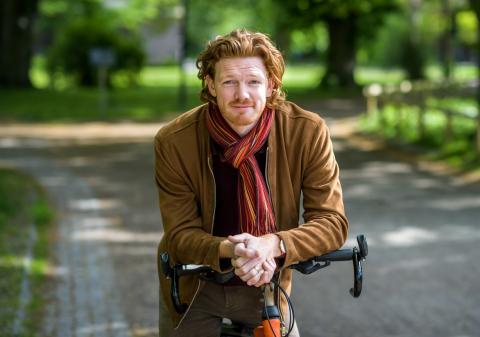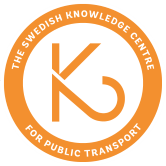Article highlighted
Campaigns to increase sustainable travel behavior

Car and car emissions cause a variety of problems such as unhealthy city air, noise, accidents and congestion. In addition, emissions from cars contribute to climate change. K2's Alfred Söderberg has published a thesis on various forms of measures to encourage car users to choose other means of transport.
− Soft measures, such as informing about new cycle paths or offering free trial periods with public transport, can be very effective, especially when the measures are aimed at car users who are open to trying something new, says Alfred Söderberg.
To find out to what extent car users really change their travel habits during a trial period, Alfred and his colleagues has collected travel data using the participants' mobile phones.
− Data from mobile phones is more reliable and does not require as much commitment from the participants as traditional travel diaries. We then get access to more detailed data which means that we can also see relatively small effects, says Alfred.
− It is also important to have a control group and an advantage if they can be offered the same encouragement, but at a later time. It provides both more data and an increased commitment among the participants, Alfred continues.
In order for authorities and employers to be able to invest to a greater extent in so-called soft measures to influence travel behavior in a more sustainable direction, it is important that the tests that are carried out are properly evaluated.
− Unfortunately, too few evaluations are made of campaigns and trial periods. But with the help of the technical solutions that are now available, we can both improve the campaigns themselves and the evaluations, says Alfred Söderberg.
During the corona pandemic, many travelers have opted out of public transport, for fear of becoming infected. Some have instead chosen to cycle or walk, but many have chosen to drive a car.
− Targeted campaigns aimed at those who chose to drive their car during the pandemic can be effective methods to attract those passengers back to public transport, Alfred Söderberg concludes.
Link to the thesis Soft measures to shift modality
Contact:
Alfred Söderberg, Lund University
e-mail: alfred.soderberg@tft.lth.se
phone: +46 733 44 46 82
